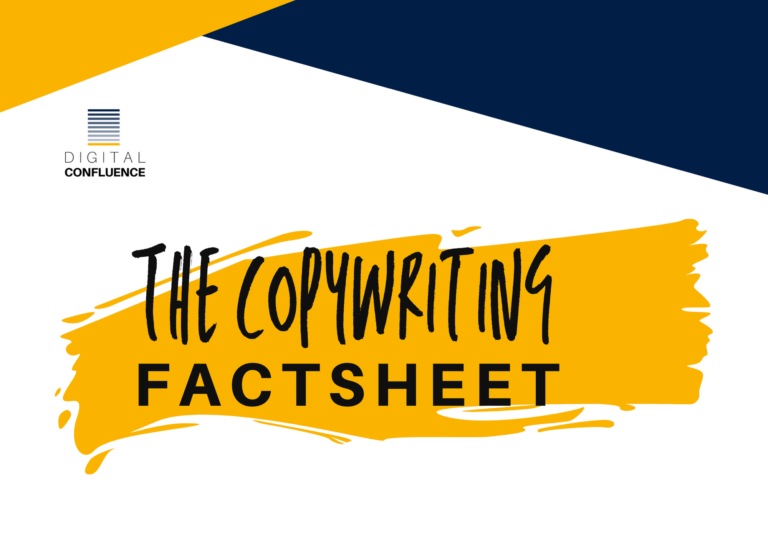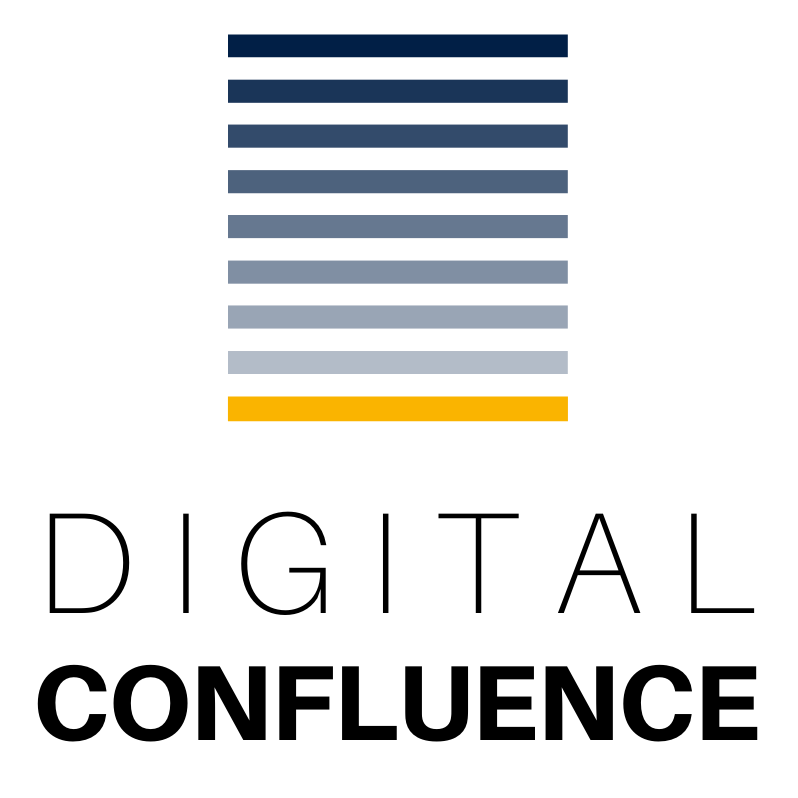THE COPYWRITING FACT SHEET

A GOOD COPYWRITER...
- is a specialist: someone who has been trained and has significant experience in developing content to match the audience and format required
- helps your brand develop a voice and then, keep that voice consistent across all channels and media
- ensures a professional approach by examining grammar and punctuation, tone and voice and reviews common errors that can impact your brand credibility
- reduces jargon and breaks down complicated ideas into easy to understand text
- supports the client but is also focused on the reader they write for
- is digitally savvy and considers things like content optimisation, Google ranking and possesses a basic understanding of SEO (search engine optimisation)
- does not just write. They create a strategy for how copy needs to be developed, taking into account where the copy sits and how it needs to be aligned with other content. They focus on supporting the business and keep an eye on results.
WHAT DOES A COPYWRITER DO?
A copywriter is someone who specialises in writing text for the purpose of advertising or to support marketing efforts.The writing produced is often called copy (or sales copy) and is developed to increase the reader’s awareness of a company’s products or services.
Ultimately, the goal of the copywriter is to elevate the company brand, to create a sense of interest and excitement and to compel the reader to take action.
THE CALL TO ACTION
The action, often called call-to-action (CTA), may differ depending on the goals of the company and where the copy sits. Examples of CTAs include:
- Explore
- Buy
- Sign up
- Try
- Watch
- Start
- Download.
HOW DOES COPYWRITING DIFFER FROM OTHER WRITING?
Content writing, for example, is about producing content to inform readers. Copywriting, however, seeks to persuade or compel, and typically includes a CTA at the end.
WHERE CAN COPY APPEAR ?
- Websites
- Landing pages
- Google, Facebook or Linkedin ads
- Print ads
- Advertorials
- Emails
- Brochures
- Pitch decks.
WHAT BENEFIT DOES A COPYWRITER BRING?
In marketing and communications, words are critical. It is how companies and brands connect with their audience in order to talk about their products and services, whether this is presented as a script for a video promotion, an email campaign, a media kit or a pitch deck.
- Writes a strong lead to grab the reader’s attention
- Finds a unique angle to write from, so that the reader is continually drawn in
- Helps a business develop and strengthen their voice
- Writes in a way that increases credibility and creates a sense of professionalism
- Is focused on the reader’s perspective: where does the reader come from, what are they concerned with?
- Knows how to format the copy – sharp headlines, subheadings and quotes, bullet points and lists
- Works with the subject matter expert to create communication that is distinct and persuasive
THE ULTIMATE GOAL
Good copywriting builds awareness, increases interest, maintains audience attention, and finally, increases conversion rates and sales.
WHEN DO YOU NEED A COPYWRITER?
- Developing a website or reviewing your existing website
- Creating a sales landing page
- Developing a product or service brochure or catalogue
- Creating a corporate profile or media kit
- Developing a print or digital advertisement.
WHERE DO YOU FIND A COPYWRITER?
- Referral or word of mouth – referrals or recommendations from trusted sources or other professionals can surface a copywriter who meets your needs
- LinkedIn – the #1 business platform where you can search for suitable professionals filtered by job title, keyword, location or more
- Google search – a very good way to find a copywriter who maintains a digital presence. You may come across their digital portfolio or website
- Freelance websites (such as Fiverr or Upwork) where individuals may list their services.
WHAT TO LOOK FOR WHEN HIRING A COPYWRITER?
- Be clear about how much experience your copywriter should have. The more experienced they are, the higher their rates are likely to be and their availability may also be hard to pin down. This clarity will help you narrow your search
- Review their digital presence and how they market themselves. A copywriter relies on their words to promote other businesses and brands.They should be able to do this for their own personal brand. Check their social media and online presence to review how they describe themselves and the services they offer
- Examine the copywriter’s portfolio for quality of writing, tone of voice, range and depth
- Does the copywriter have a niche, specialising for example, only in Human Resources and Learning and Development? Hire a copywriter who has experience in your industry. Niches, while not entirely necessary, are useful for honing into a topic in greater detail with skill
- Clarity on how they approach the project. Get more information on their work process and communication plans, time management and the number of drafts to be expected
- Look for recommendations and reviews. Get a sense of the experience of other clients and the subjective feedback they may offer.
HOW TO PROVIDE A GOOD BRIEF
A brief ensures a meeting of minds between the client who needs some copy to be written and the copywriter who will take on the job. A good brief creates the right expectation, sets out parameters for the job and avoids confusion.
A good brief should include the following:
- Details about the client – share your corporate profile, website or other business assets that shed light on the company and what it does
- The copy – provide details on what is required and where this sits. Is this for a website, email campaign or advertisement? The media will influence the writing style and approach
- The goal – why is this copy being sought? What purpose does it serve? What are some intended outcomes? What are mandatory requirements or inclusions? What are no-go areas?
- Time frame – be clear about the deadline for drafts, revisions and the overall deadline for completion. Ensure a meeting of minds in terms of process and flow
- Change management – develop a plan for how change is to be managed and what constitutes change
- USP – what is the one thing that sets your business/product/service apart from your competition?
- Target audience – being absolutely clear about the intended recipient of the message is critical so that the language, tone and message itself is adjusted to suit that specific audience
- CTA – the call to action is one of the most important features of copywriting. The job of the copywriter is to create momentum, drive awareness and engagement and ultimately, nudge the audience to take specific action. Be clear about your CTA
- Assets and materials – provide all the relevant documentation and collateral necessary for the copywriter to not only understand who you are and what you do (as a baseline) before the copywriter can get into the heart of the copywriting task
- SEO (search engine optimisation) – in today’s digital business landscape, you need to provide relevant hashtags, taglines and keywords that support your business and the copywriting activity
- Agreement – once the brief and commercials are agreed, outline the terms in writing. A simple and clearly laid out agreement should outline terms such as the parties, pre-conditions, the services provided, how change will be managed, time frames applicable, commercials, dispute management and more.
